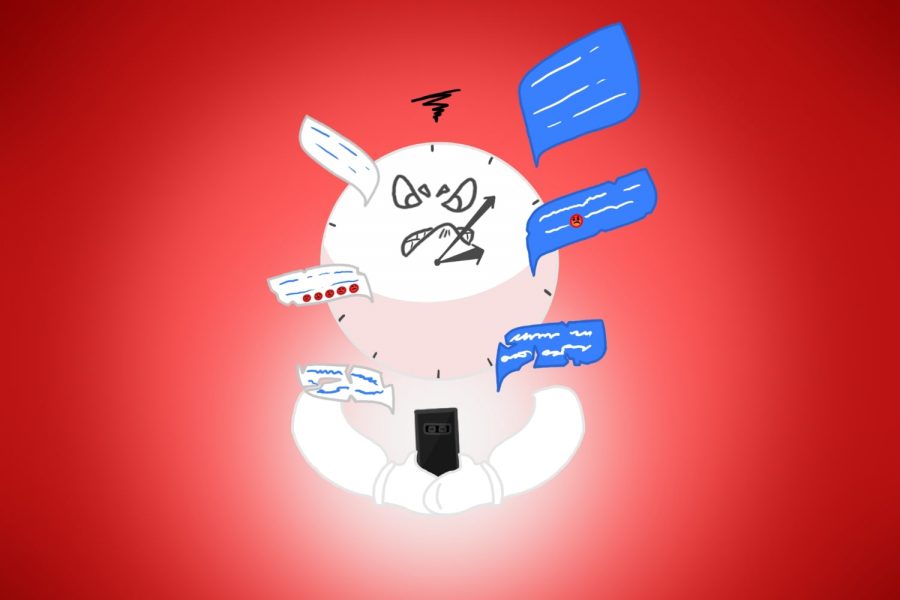A smart device is a portal to an extremely connected network of people. Unfortunately, many of the interactions a teen can have with people online can be toxic and negative, which causes problems if the teen isn’t taught how to handle them or disengage properly.
Harmful interactions
When trying to pinpoint the issue, it’s tempting to just blame the technology and call it a day.
However, according to Chris Ferguson, Ph.D., a psychologist at Stetson University, the problems arise not from the device or platform itself but from the unhealthy interactions that it facilitates.
“It really is the interactions with other people, and a lot of those people are, well, jerks,” Ferguson said. “The problem is that young kids don’t know how to disengage from arguments, don’t know how to ignore or react to these situations properly, or might even be contributing to the bad behavior because they’ve taken the example set by those interactions to heart.”
Certain behaviors and values that have been observed in past generations of youth have reversed. Ferguson notes the dramatic shift in Generation Z behavior, which he attributes to the growing availability of technology and social media.
“What you saw in earlier generations was that kids would generally try to be ‘edgier’ than their parents in the way they expressed themselves. Look at music as an example; ‘60s and ‘70s rock and roll turned into the ’80s punk and metal, then into the ’90s and gangster rap,” Ferguson said.
Having studied its effects extensively throughout his career, Ferguson believes that, specifically in the last five years, social media like Twitter and Instagram are the reason these trends of “edginess” have veered off in a completely new direction.
“Now that the main form of expression is through social media, you have this strangely sudden wave of hyper-focus on everything you’ve ever done, scrutinized for even the slightest inkling of being out of line. That’s new! Nobody did that before,” Ferguson said.
Citing the phenomenon of “cancel culture” as an example, Ferguson believes that the often toxic and unforgiving environment that this trend in social media creates can be detrimental for children due to their impressionable nature.
“The environment created on social media by this mindset creates a desire for conformity. If basically anything you do that’s different from the ‘norm’ gets this much backlash, it disincentivizes saying things that go against ‘public’ opinion,” Ferguson said. “This becomes a really toxic environment that certainly affects the way kids think, especially since they’re the most impressionable group due to their brains still developing.”
Despite acknowledging its possible downsides, Ferguson thinks technology isn’t something that children stay away from. In a progressively more digital world, parents who don’t expose their children to technology are ensuring that they will fall behind in a society increasingly demanding technological savviness.
“Abstinence is almost never the answer when it comes to these kinds of things. Technology is there, everyone’s using it, and barring kids from learning vital technological skills will only become a problem for them later on. Everyone wants tech-savvy workers; if someone doesn’t get exposed to technology until they’re an adult, they’re going to lag behind those who’ve grown up around it for years and years,” Ferguson said.
Ultimately, the responsibility falls on the parent to decide when they should let their child interact with technology and for how long. From social media algorithms being proven to be manipulative to the ever-present experiences of cyberbullying and predation to the integration of devices in schoolwork and even the effects on physical health, it is vital that parents prepare their children for the inevitability of technology and how to limit its possible negative effects.

